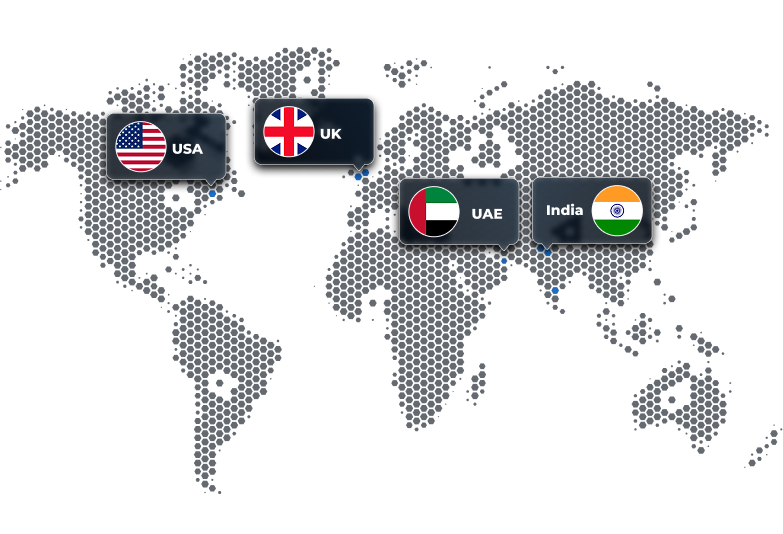The mobile app industry is booming, and businesses across industries are racing to set up a strong digital presence. Well, here’s the catch! Building an app from scratch can take months, cost thousands of dollars, and demand constant upkeep. That’s where white label mobile apps come into the picture.
Instead of reinventing the wheel, companies can use ready-made app solutions, customize them, and launch faster. In fact, research shows that over 60% of startups prefer ready-to-deploy solutions like white label mobile apps to save time and resources. With the right approach, you can not only speed up your app launch but also ensure long-term success.
In this blog, we’ll explore the best practices for successfully launching a white label app, while also shedding light on the importance of choosing the right partner, customization strategies, and growth hacks.
What Is a White Label App and Why Does It Matter?
A white label app is a pre-built software product developed by a provider, which businesses can rebrand, customize, and launch as their own. Take it as a blueprint; you add your brand name, colors, features, and voilà, you have a fully functional app ready to hit the market.
For example, food delivery startups can launch their own version of an Uber Eats-style app without spending millions on development. Similarly, fitness coaches, e-learning businesses, and retailers use white label mobile app development to scale quickly.
Here’s an interesting fact: The global mobile application market is expected to cross $567 billion by 2030 (Grand View Research). This growth makes white label solutions even more relevant because businesses need speed, flexibility, and cost efficiency to compete.
Best Practices for Launching a White Label App
Now that we understand what a white label app is, let’s dive into the proven strategies that will help you launch it successfully.
1. Start with a Clear Business Goal
Before reaching out to a white label app development partner, define the purpose of your app:
- Is it to improve customer engagement?
- Drive sales?
- Streamline services?
Without clarity, your app might end up being just another digital product that doesn’t solve user pain points. For instance, a retail brand may want to improve customer loyalty through personalized shopping features, while a healthcare startup may focus on secure teleconsultations.
Pro tip: Always align your app features with your core business goals to maximize ROI.
2. Choose the Right White Label App Development Company
Not all providers are created equal. The partner you choose can determine whether your launch thrives or struggles. A proficient white label app developer will offer:
- Pre-built frameworks that are reliable and scalable.
- Easy customization options.
- Post-launch support and updates.
- Transparent pricing models.
When comparing options, also check reviews, portfolios, and turnaround times. Some companies may claim to be the best white label app builder, but their product may lack scalability. So, always ask for demos and case studies.
A highly recommended option for a reliable white label mobile app builder is DigiMantra, which is renowned for serving a global clientele with its experienced team of tech experts.
3. Focus on Customization for Branding
One of the biggest advantages of white label mobile apps is that they don’t look generic. You can customize them to reflect your brand identity. This includes:
- Logo and color schemes.
- Fonts and design layouts.
- Unique feature sets aligned with your audience.
For example, if you’re a restaurant chain planning to expand through white label app development, your customization should highlight menu displays, order tracking, and loyalty programs.
Fun fact: According to Lucidpress, uniform branding across online channels can boost turnover by nearly 23%. So, don’t underestimate the power of personalized branding in your white label app.
4. Prioritize User Experience (UX)
No matter how fast or affordable your app is, if it doesn’t offer a smooth user experience, people won’t stick around. Ensure your app has:
- Intuitive navigation
- Fast loading times
- Clear CTAs (call-to-actions)
- Accessibility features
Testing your app on different devices is also crucial, especially when working with a white label app development provider. Poor UX can cost businesses big time. Data indicates that around 88% of users stop using an app after encountering a negative experience.
5. Integrate Essential Features
A great app balances must-have features with niche-specific functionalities. While every app differs, here are a few essentials:
- Push notifications
- Payment gateways
- Analytics dashboard
- Security protocols
For example, e-commerce brands should integrate multiple payment options, while educational platforms may need live video classes and content libraries.
If you’re partnering with the best white label app builder, most of these features will be included, but you can request add-ons based on your audience.
6. Ensure Compliance and Security
Data security is non-negotiable, especially if your app handles payments or sensitive user data. Collaborate with a trusted white label mobile app development partner that ensures compliance with GDPR, HIPAA, or other relevant regulations.
Users are increasingly cautious nowadays. Reports suggest that over 70% of customers are less likely to engage with an app that doesn’t clearly show data security measures.
7. Test Before Launch
Never launch without testing. Collaborate with your white label app developer to perform:
- Beta testing with real users.
- Device compatibility tests.
- Stress testing for scalability.
Testing ensures your app runs smoothly in real-world scenarios and prevents costly rework post-launch.
8. Have a Marketing Plan in Place
Even the best apps fail without the right marketing strategy. Before you launch:
- Build anticipation with teaser campaigns.
- Use social media to spread the word.
- Leverage influencer partnerships.
- Optimize your app store listing for visibility.
Remember, building a thriving app takes 50% development and 50% marketing.
9. Gather Feedback and Iterate
Your first launch isn’t your final product. Use analytics and user feedback to improve your app continuously. Whether it’s upgrading features, fixing bugs, or enhancing UX, iteration is the secret to long-term success.
For example, most top-performing apps release updates every 2-4 weeks to stay competitive.
10. Scale Smartly
Once your app gains traction, scaling is the next big step. Work with your white label mobile app builder to combine advanced features, expand user capacity, and explore cross-platform availability.
Scaling ensures your app can handle growth without crashing or compromising performance.

The Business Case for White Label Mobile Apps
Still wondering if it’s worth it? Let’s crunch some numbers:
- Building an app from scratch can cost anywhere between $50,000–$250,000, while white label mobile app development can cut costs by up to 60%.
- Typical time to craft a custom app: 6 to 12 months. A white label mobile app builder can reduce that timeline to just 4 to 6 weeks.
- The market for white label mobile apps is growing rapidly as businesses in industries like food delivery, healthcare, and e-learning adopt them for quick digital transformation.
Clearly, white label solutions are not just cost-effective; they’re also the smarter choice for businesses that want agility.

Final Thoughts
Launching a white label app is one of the most effective ways to enter the digital ecosystem without draining your budget or waiting years for development. The secret lies in:
- Selecting the right white label app development company.
- Customizing your app to reflect your brand.
- Prioritizing user experience and security.
- Backing the launch with strong marketing.
With these best practices in place, you can position your app for long-term success in a competitive market.
So, whether you’re a startup or an enterprise, partnering with the best digital transformation company, can help you scale faster, save money, and keep your customers engaged.
Key Takeaway: White label apps are the future. With the right strategy, you can launch your own branded app in weeks, not months, without breaking the bank.
Unlock Your Digital Potential Today!
Don’t just keep up, lead your industry.
Connect with DigiMantra’s top strategists and AI, web, and software experts to boost growth, streamline operations, and drive innovation.
Your transformation starts here.





